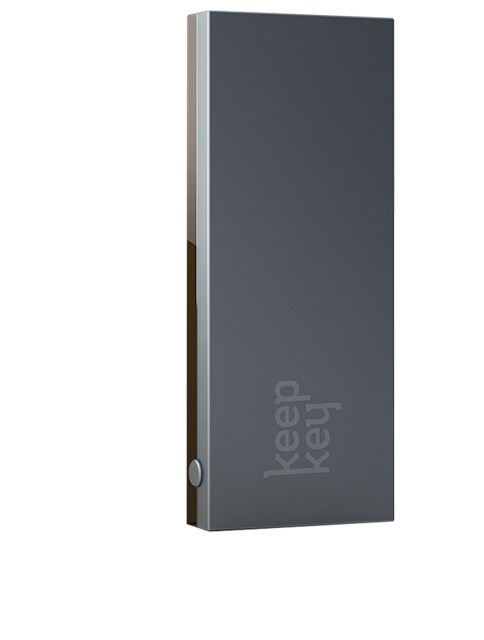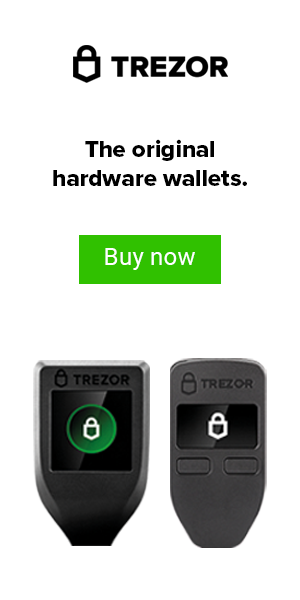Ellipal Titan vs BC VAULT (2020) | 2 Best Hardware Wallets Out Right Now?
Ellipal Titan vs BC VAULT! In this comparison, we are going to do a head-to-head of two of the most competitive and popular new cryptocurrency hardware wallets in this edition of the hardware wallet roundups.
I am going to dive into which of these hardware wallets is better and more secure. How big is your portfolio? Do you need mobile AND desktop support? Do you use any 3rd party wallets for integration? Do you need web-based access instead of a required download?
These are all questions you will need to consider when deciding which of these wallets will be best for you. At the end of the day, the coin support is one of the most important factors (besides security) when deciding which hardware wallet is best for you.
Ultimately, if it doesn’t support the coins you want to store offline, it won’t work for your particular situation. So keep that in mind as we dive into what I consider to be the most important factors when making such an important decision, such as choosing a cryptocurrency hardware wallet.
Ellipal Titan: Overview
This is a really unique device and has a very robust form factor that has ratings that rival that of some high-end smartphones. What separates this hardware wallet from the majority of other popular wallets is it’s communication method. So, what do I mean by that? This device has NO: USB Connection, NFC Connection, WiFi Connection, Bluetooth Connection, or Cellular Connection. So, how do you use it? The short answer is: QR Codes.
Ellipal Titan: Security
This is a 100% air-gapped device, so ultimately it is more secure than any other way to interact with a hardware wallet. Period. The device has a tamper-resistant enclosure that includes a self-destruct mechanism for any potential way to access the internals of the device.
It is built in such a way that if anyone tries to break the screen or drill a hole through the device in an attempt to open its internal layout, the private keys will be erased. This is extremely powerful and will ultimately deter people from trying to hack this completely wireless device.
Ellipal Titan: User Experience (UX)
This hardware wallet has a camera, a 4-inch full color display, and does not display any balances on the device itself. The portfolio management and execution of the device is managed via a companion iOS and Android app that is used to initiate transactions and allows you to utilize the camera from your smartphone to transfer funds securely to the cold wallet, and vice versa.
I have been using this device for several weeks now, and in my personal opinion, it has been super easy to use and also very secure. I like knowing that my device is essentially indestructible and does not require any other 3rd party connection in order for it to function. This not only makes it very convenient, but it also very secure and eliminates room for error when typing or copying pasting wallet addresses that you are trying to transact with.
Ellipal Titan: Coin Support
This is always the section I check the most when reviewing hardware wallets, because although functionality and security are important, none of that matters unless it supports the coins you want to store offline. So here is the current list of supported coins and the one that are currently in development listed in the below picture.
BC VAULT: Overview
Unlike most other popular cryptocurrency hardware wallets, like Ledger Nano X and Trezor Model T, you do not set up a recovery seed card before you initialize the device. In fact, there is a gyro sensor for you to randomly generate private keys by physically shaking the device (seriously).
You can also hold more than 2000 unique wallets within the web app, and can granularly set specific passwords for each one and setup multiple PIN’s to not only make it more secure, but also allows for an easy way to share the device and use Multi-Sig. In fact, this is the first device that natively allows you to use Multi-Sig on a per wallet basis and set multiple PIN’s.
This wallet does not use HD wallets, so each wallet has its own unique backup. This does make it more secure, however, if you lose or forget the global PIN and global password for the device, your funds are locked inside forever. They do have an encrypted QR code backup for each individual wallet, or you can create a backup on the included micro SD card that comes in the box.
BC VAULT: Security
The storage is reliable. The BC Vault’s private keys have complete encryption and they are stored in the FRAM device. The FRAM is fully tamper-resistant and thanks to the reversible USB 3.0 Type-C connector any damage occurring from mechanical error is fully prevented.
In addition to the secure FeRAM that is securely encrypted, and the large display which is useful when confirming transactions, you have peace of mind not having to worry about anyone locating or using a recovery seed phrase to render your funds useless.
You can also import any private keys you have elsewhere via the SD card as well, so you can easily interchange private keys from other wallets if you have them in the correct format.
BC VAULT: User Experience (UX)
This wallet has some pretty unique features I will admit, and it’s pretty refreshing. For example, you can use multiple cryptocurrencies at once. There are no “apps” you need to install or fear or worry of running out of space that most wallets have when upgrading the firmware.
Additionally, the amount of coins and wallets that can be used/stored simultaneously is astounding. As mentioned above, you can have up to 2000 unique wallets and can interchange multiple cryptos in multiple wallets.
BC VAULT: Coin Support
This is usually one of the most important factors when deciding on a hardware wallet (with the exception of security). If the wallet doesn’t currently support the coins you need to store offline, you can’t really take it too seriously as a deciding factor for purchase. Regardless of whether or not they claim to add more coins in the future.
Needless to say, they have some unique choices for coin support HERE.
Ellipal Titan vs BC VAULT: Conclusion
This is a really close call. Each of these wallets have some unique features that I use for different use cases. When it comes to the BC VAULT, I can securely share this wallet with multiple people and it’s honestly the best user experience when it comes to multi-sig on a hardware wallet. Period.
When it comes to the Ellipal Titan, the completely wireless and air-gapped security is extremely compelling. It makes it very easy to use on the go, and not be tethered to a computer. The ease of use and over user experience is much improved from the last iteration of this product and I personally have been using this for long term “hodling” lately, and as a single user with no need for multi-sig on this type of device, it’s been extremely pleasant to use.
At the end of the day, these are really built for two different use cases (in my opinion), but both have great coin support and have very unique security features that set them apart from the rest of the pack.
If I could only choose one and I didn’t specifically need multi-sig for a specific reason, I would go with the ELLIPAL TITAN. I’ve used almost every single hardware wallet on the market and the ease of use and peace of mind is enough to make me feel secure and makes it easy to send your private keys offline. You really can’t go wrong with ANY of these wallets, but just think about how you want to manage your crypto assets on a regular basis.
What do you think? Would you choose the BC VAULT over the D’CENT Wallet? Let us know down below in the comments!
Cheers,
The Crypto Renegade
NOTE: This post may contain affiliate links. This adds no cost to you but it helps me focus on giving as much value as possible in every single post by being compensated for recommending products that help people succeed.












